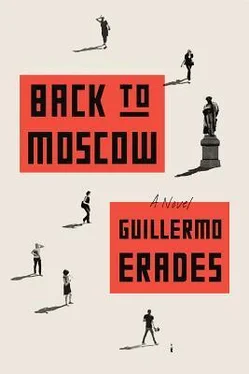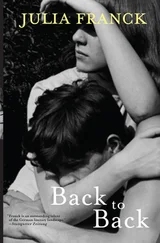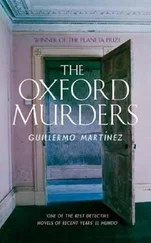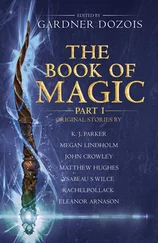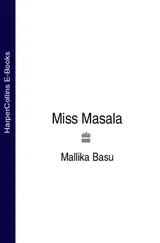At the far end of the bright corridor, a black metal door throbbed with loud music. As we approached, my heart pumping fast, I was taken aback by the stench of spilt beer and vomit. I held my breath.
Colin pulled the door and beckoned me in. ‘Welcome to the Duck.’
Stepping into the main room, I was slapped by a wave of wet heat. It was balmy and smoky and dark, and at first I saw only the colours of the disco lights — laser reds and greens and purples — but as my eyes adapted to darkness, I started to discern what, I later learned, The Exile was describing as the wildest clubbing scene in the Northern Hemisphere.
Hundreds of dyevs dancing under the strobe lights. On the chairs. On the tables. Singing, screaming, their eyes red and watery, their clothes drenched in sweat. A bunch of them danced topless on the bar, bouncing their shiny young breasts, waving their bras over the all-female crowd.
They had arrived at the Duck hours earlier, from all over the city, from the most remote metro stations and trashy suburbs, and by the time we guys were allowed to enter — Tuesday night, eleven sharp — they had drunk themselves into submission.
These were the same dyevs who just a few months later would wear fake designer clothes with glittering logos to make it into Zeppelin or Shambala, and would only talk to us if we bought them overpriced cocktails and glasses of champagne; but back then, at the Hungry Duck, they gulped down tons of free beer, vomited on the carpets, stumbled among the tables and, when they were so wasted they could no longer stand on their cheap high heels, they threw themselves into the arms of those of us blessed with the chance to live, at such a turbulent moment of its history, in the wonderful city of Moscow.
PART ONE. Tatyana’s Lesson
ON 8 JUNE 1880, shortly before he died, Fyodor Mikhailovich Dostoyevsky walked onto a stage in central Moscow and, in front of a cheering crowd, delivered a long and emotional speech to celebrate the unveiling of Pushkin’s statue. According to several accounts of the event, which were captured in the diaries and journals of the time, the atmosphere was electrifying. Fyodor Mikhailovich himself wrote later that day that the crowd kept interrupting him, applauding enthusiastically every few sentences, standing up in ovation.
At the very end of the speech, the audience completely lost it when Dostoyevsky made his impassioned call to follow Pushkin’s example and embrace both the uniqueness of Mother Russia and the oneness of humanity.
What came to be known as the Pushkin Speech had an enormous impact on Russia’s intelligentsia at the time. It soon became one of the defining moments in the cultural history of the country — a new chapter in Russia’s endless debate between those in favour of a Western course for their country and those, such as Fyodor Mikhailovich himself, who saw Russia as a unique nation with a crucial role to play in the history of humanity.
By the time he delivered the speech, Fyodor Mikhailovich was an old man in poor health. He felt this was his last opportunity to set the record straight on Pushkin, to prove that, to Russians, Pushkin was much more than ‘just’ the national poet. In a letter he wrote to his wife a few days before the speech, Dostoyevsky had said his participation in the event would be essential, as ‘the others’ were not only determined to downplay the importance of Pushkin in Russia’s national identity, they were also ready to deny the very existence of this identity.
My voice will carry weight, Dostoyevsky wrote.
That day in June, Fyodor Mikhailovich talked about Pushkin’s prophetic existence, and his role in understanding and defining the Russian character. Dostoyevsky made it clear that, without Pushkin’s genius, there would be no Russian literature, at least not as the world knew it.
The speech was dedicated in great part to Pushkin’s masterpiece, Evgeny Onegin . Dostoyevsky focused on the character of Tatyana, after whom, he said, Pushkin’s verse novel should have been named. After all, Tatyana, not Onegin, is the central character of Russia’s most famous love story.
Tatyana Larina, an innocent girl living in the provinces, has a crush on Onegin, a sophisticated dandy visiting from the capital. She writes him a rather tacky love letter, but Onegin, who had somehow misled Tatyana, doesn’t write back as she’d expected. Instead, he rejects her in a cruel and condescending manner, causing her pain, humiliation and a lot of very Russian sorrow. There are some complications — and a duel, of course — and then Onegin splits.
The years go by and one day Onegin bumps into Tatyana in Peter, which back then was the capital of the empire and not the provincial backwater it is today. She’s all pafosni and elitni, Tatyana, because she’s managed to snag an aristocrat. Onegin now realises how hot Tatyana is and tells her he really really wants her. This time for real.
In spite of the years, Pushkin tells us, Tatyana remains in love with Onegin. Now, finally, she has a real chance to be with him. So, what does Tatyana do? Does she ditch her husband and elope with her true love?
Nyet, she doesn’t. In the culminating scenes of Pushkin’s long poem, Tatyana decides to stick with her husband and, in her own nineteenth-century way, tells Onegin to fuck off.
A simple love story which most Russians know by heart. Many are even able to recite entire chapters — ‘ya k vam pishu’, Tatyana’s letter, being an especially popular passage.
The symbolism of the story should not be ignored. Tatyana, the pure girl from the countryside, embodies the essence of Russianness, while Onegin, the cosmopolitan bon vivant , is a cynical fucker corrupted by modern European values. Onegin’s life is about superficial pleasures. Tatyana’s is all about meaning.
Why does Tatyana reject Onegin? Dostoyevsky asks in his speech. Pushkin had made Tatyana’s feelings clear. Wouldn’t she be happier if she dumped her husband and took off with her true love? Fyodor Mikhailovich pushes his case further. What would have happened, he asks his Moscow audience, if Tatyana had been free when Onegin finally made a pass at her? If she had been a widow? She would still have rejected him, Fyodor Mikhailovich says.
Russian as she is, Tatyana knows that there is more to life than happiness.
‘TELL ME, MARTIN, WHAT impact has Aleksandr Sergeyevich had on your life?’
We were sitting in Lyudmila Aleksandrovna’s office in the humanities faculty, a cramped room with ceiling-high bookshelves that lined every wall and partially covered the room’s only window. It was a couple of days after my arrival in Moscow, and we were meeting to discuss my research project. With her fleecy moustache and thick glasses, Lyudmila Aleksandrovna matched the preconceptions I had of Russian professors.
For her, asking about Aleksandr Sergeyevich was not a simple icebreaker — it was her way of testing my commitment to the research project and, in a wider sense, my devotion to the world of Russian literature. But I was newly arrived and unaware that Lyudmila Aleksandrovna was on a first-name-patronymic basis with Russian authors, so it took me a while to realise she was not asking about a mutual acquaintance — she was talking about Pushkin.
You mean that Aleksandr Sergeyevich!
Once I understood the implications of Lyudmila Aleksandrovna’s question I could not bring myself to tell her that I — a doctoral student in Russian literature, a scholarship laureate, a soon-to-be-called expert — had never read a single line by the national poet, the father of modern Russian language, the very incarnation of the Russian soul. She would be devastated and I would be uncovered as a fraud.
Читать дальше
